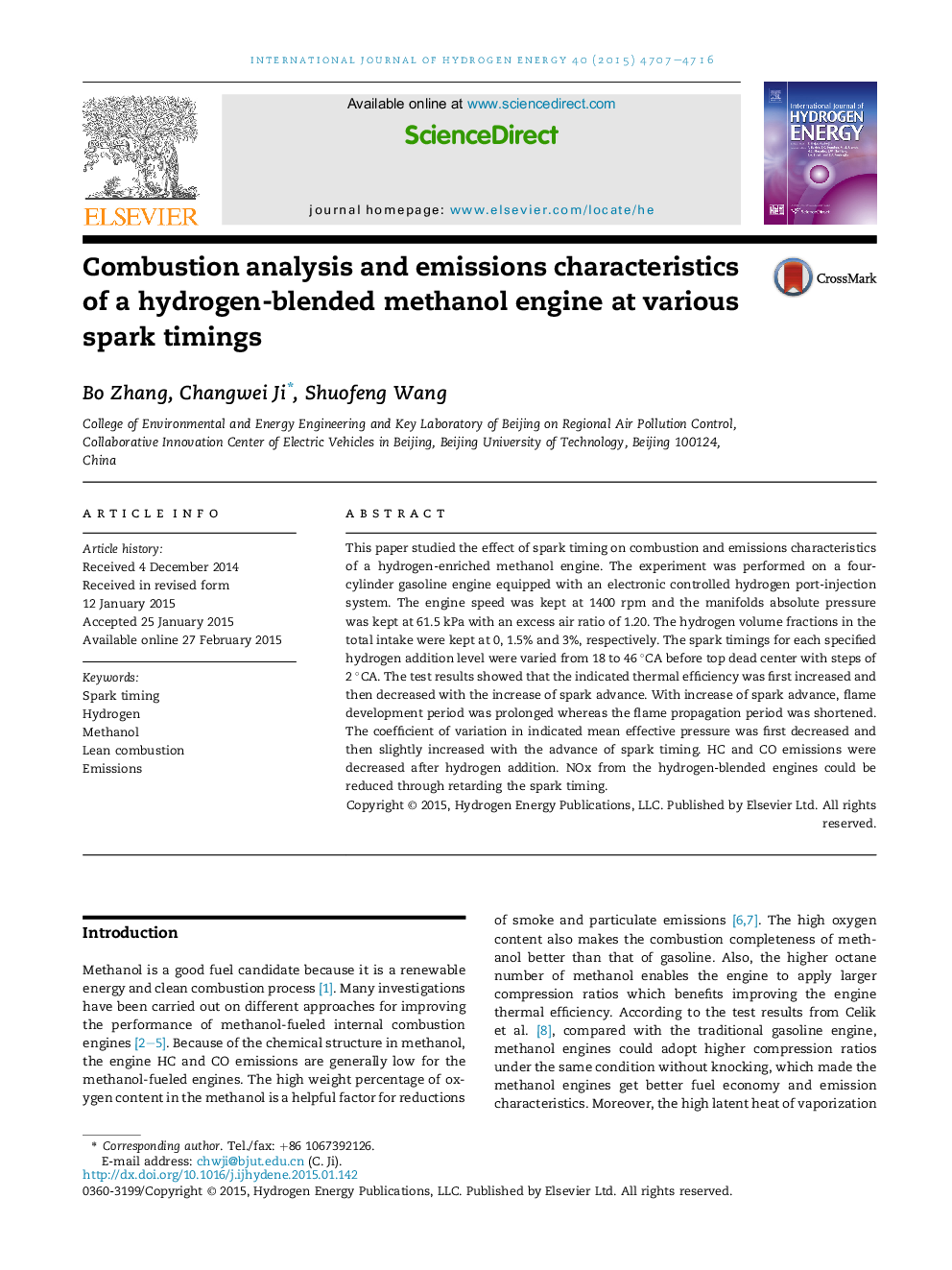| Article ID | Journal | Published Year | Pages | File Type |
|---|---|---|---|---|
| 7716097 | International Journal of Hydrogen Energy | 2015 | 10 Pages |
Abstract
This paper studied the effect of spark timing on combustion and emissions characteristics of a hydrogen-enriched methanol engine. The experiment was performed on a four-cylinder gasoline engine equipped with an electronic controlled hydrogen port-injection system. The engine speed was kept at 1400 rpm and the manifolds absolute pressure was kept at 61.5 kPa with an excess air ratio of 1.20. The hydrogen volume fractions in the total intake were kept at 0, 1.5% and 3%, respectively. The spark timings for each specified hydrogen addition level were varied from 18 to 46 °CA before top dead center with steps of 2 °CA. The test results showed that the indicated thermal efficiency was first increased and then decreased with the increase of spark advance. With increase of spark advance, flame development period was prolonged whereas the flame propagation period was shortened. The coefficient of variation in indicated mean effective pressure was first decreased and then slightly increased with the advance of spark timing. HC and CO emissions were decreased after hydrogen addition. NOx from the hydrogen-blended engines could be reduced through retarding the spark timing.
Related Topics
Physical Sciences and Engineering
Chemistry
Electrochemistry
Authors
Bo Zhang, Changwei Ji, Shuofeng Wang,
